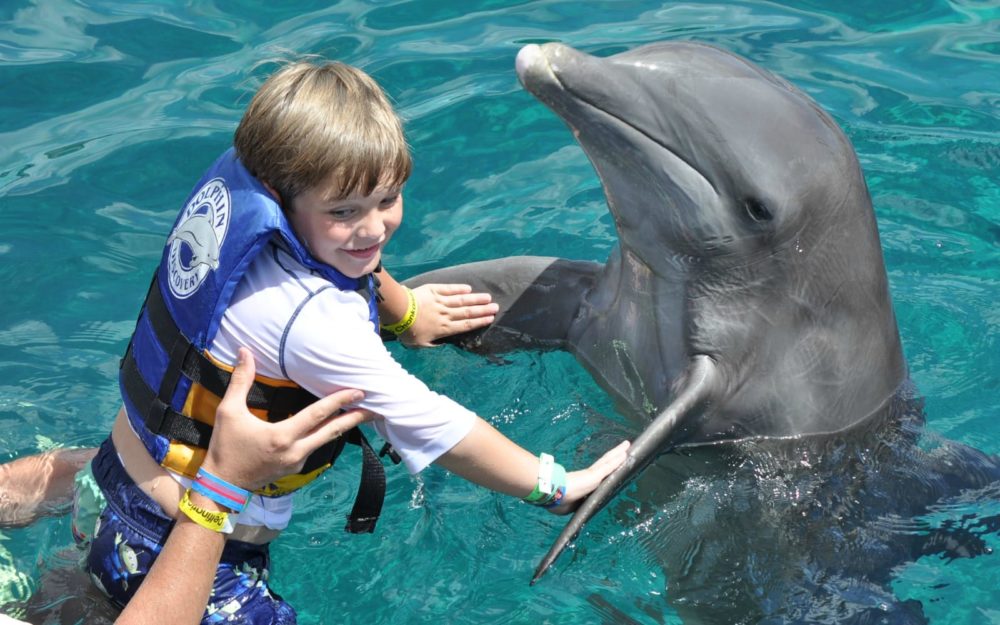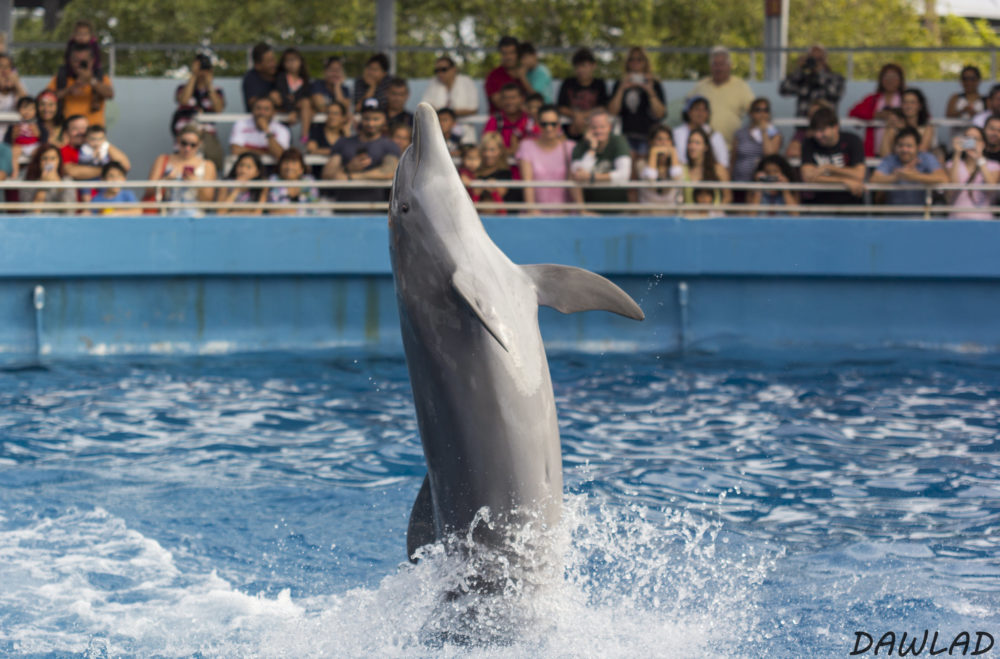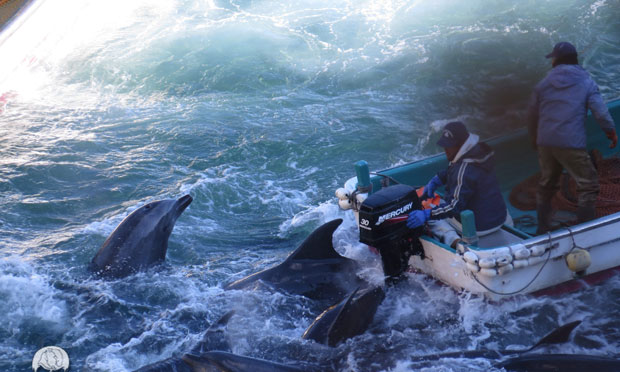Summer holiday hell: Dolphins deserve better

Stephen Price
The summer holidays are upon us, and with Covid restrictions a thing of the past, Brits are abroad and (thankfully) in fewer numbers out west.
With an inevitable return to sun, sea and sangria, however, comes a social media photo onslaught which is making no one jealous – but rub our envious noses in it they must.
Oh to be enjoying a full English in an ‘ex-pat’-owned bar right now, or stumbling upon memory-making exploits among the sand dunes.
Pics of lemon Fanta and Lays crisps, sausage legs on a plastic sun lounger, and nights out acting like a complete dickhead. Groundbreaking.
Another trophy shot to add to the pics, however, isn’t quite so victim-free (although apologies to the natives across the world who have six weeks of hell ahead), and that’s the ‘swim with dolphins’ photo – an absolute must for the well-discerned traveller who has no time for boring local stop-offs and traditional exploits.
Up there with Live Laugh Love prints, a framed shot with a captive dolphin is a mainstay on the Brits-when-not-abroad mantelpiece.
Past colleagues of mine have visited time and time again, such is its popularity, and one posted photos only yesterday.
Lush!
In my many years of being aware of this being a thing, not once has anyone who has visited them ever, in my presence, wondered how these wild animals got there.
No one questions if the dolphins at water parks are happy, but I think it’s fair to assume that being imprisoned in a tank and meeting Sharon from Ebbw Vale instead of swimming freely in the ocean with their pod wasn’t on their bucket list
Spin
Take a few examples.
Dolphin Quest paints a wonderful picture of conservation and kindness, saying: “Situated against the picturesque backdrop of Oahu’s Kahala coastline, Dolphin Quest Oahu is a marine sanctuary that invites guests into the enchanting world of dolphins.
“Dolphin Quest Oahu is renowned for its commitment to education, support of scientific research, and actively advocating for hands-on conservation efforts.
“These vital community initiatives receive substantial support through the engagement of guests in our purposeful dolphin interactive experiences.”
Mundo Mar, Benidorm is another popular option for Brits abroad without such a holiday budget.
Trip Advisor reviews are glowing with many describing it as ’the best thing they’ve ever done’ and a ‘once in a lifetime experience’ – and many praising the fact that their ‘profits go to dolphin therapy for disabled children’.
Horrifying.
One wrote: “My husband, baby daughter and I visited Mundomar on 3/5/24 and have to say it was an amazing experience.
“It is so well laid out, I had booked to swim with dolphins whilst my husband amused our little girl. The dolphins I swam with were incredible, Agua and Camino.
“I wish they could know how grateful I am for letting me in their space. It it a bucket list item and I had an amazing experience so thank you to all the staff and dolphins.”
Another had her child photographed with a sea lion, writing: “We paid to swim with the sea lions and it was an amazing experience,it cost 60euros per person which included entry, 30 minutes with the sea lions a free photo of you with a sea lion and a bag with a mundomar towel.”
The ‘awe’ they all speak of – the majesty of these wild animals – can’t be denied. But neither can their cognitive dissonance (i.e. the discomfort a person feels when their behaviour does not align with their values or beliefs).
Barbaric
Dolphins are intelligent animals who enjoy a highly advanced social structure.
In the ocean, they live in large social groups, and females typically spend their whole lives with their mothers and sisters in the family pod. They can swim up to 60 miles a day and dive to depths of up to 1,000 metres.

At marine parks – and any attraction offering ‘swim with dolphin’ experiences – the animals can become anxious, frustrated, aggressive, and even neurotic as a result of confinement to shallow tanks, some of which are only 1.8 metres deep.
They are forced to interact with an unrelenting stream of humans, who use them as selfie props and may grab or squeeze them, causing distress.
So how do they end up in marine parks?
Many of them are kidnapped from their ocean homes. This typically involves boats chasing dolphins into shallow waters in which they cannot escape the surrounding nets.
Dolphins have strong family relationships and travel in pods. If one of them is captured, other members of the pod may try to save them. What’s more, after the catch, dolphins considered “less attractive” may be killed, and the others are sold to parks around the world.
Unwanted dolphins who are released back into the ocean may die from shock, stress, or pneumonia.

Abused for entertainment, these sensitive animals are routinely separated from their families and subjected to the social, physical, and psychological trauma of captivity.
Since the frustration of close confinement increases aggression, fights between dolphins are common.
The animals show signs of distress, such as rake marks, skin lesions, sunburn, and listless floating, and many sustain injuries, contract illnesses, and die prematurely.
Sexual abuse
Dolphins used for performances and “swim with dolphins” activities at SeaWorld are also sexually abused, and then their babies are taken away from them.
Unwilling male bottlenose dolphins are masturbated, and females are pulled out of the water and sometimes drugged so that they can’t fight back while staff shove tubes filled with semen into their uteruses.
These traumatising practices go against the natural breeding habits of dolphins but are standard procedure at marine parks which breed them for profit
“Disgust, anger and sadness”
Sea Shepherd Conservation Society places volunteers on the ground in Taiji, Japan, to observe the hunt that provide dolphins for sea parks across the world, taking part in a campaign called “Operation Henaku.”
Speaking to The Dodo news website, Captain Jessie Treverton said: “Watching the dolphins forced to perform in exchange for dead fish and people swimming with the dolphins fills us with disgust, anger and sadness.
“The ignorance of these people – if they only knew the horrors and abuse and suffering these dolphins go through.”
According to Graham Henry, the campaign coordinator for Sea Shepherd, people generally have no idea of the horrors dolphins go through before they pay to swim with them.
He said: “I don’t think the tourists are provided with information as to how the dolphins are obtained during the drive hunts and captive selection process.”
A plea
Swim with dolphin experiences are up there with past abuses that we know are wrong and we wouldn’t dream of allowing in the UK now – from dancing bears and elephants to circus acts with tigers – but we’re free to hop on a plane and do it elsewhere.
We know it’s abuse, so why are so many of us funding and promoting this?

It should go without saying, but we should never support businesses that imprison wild animals for profit – whether caught, or forcibly bred for a life of suffering in captivity.
Refuse to visit marine parks that keep animals captive, and avoid any facilities or tours that promise contact with animals.
Instead, enjoy compassionate activities, such as snorkelling, kayaking, swimming, or visiting an animal-free theme park or attraction.
Wild animals do not learn to dance, to perform tricks, or to pose for photos without persistent and ongoing abuse until they are so broken they have little choice but to submit.
Dolphins, sea lions and other animals do not deserve to live in tiny tanks, only to be let out for a few hours a day for the sake of a fridge magnet. It should not need spelling out.
When we pay, we prolong and perpetuate their suffering. It really is that simple.
Let’s all do better.
Support our Nation today
For the price of a cup of coffee a month you can help us create an independent, not-for-profit, national news service for the people of Wales, by the people of Wales.






It’s a strong article and at times a difficult read, but necessary I think as it exposes the realities. Corroborates with a documentary I saw about captive killer whales a few years ago, similar practices going on I understand.